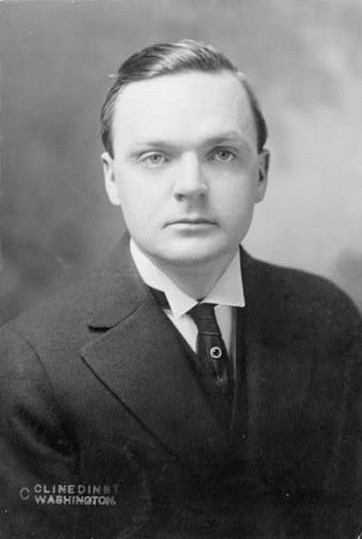Monday, February 18, 2013
Dudley Field Malone, 1: The Courage of His Convictions
CHRONICLES OF CROTON’S BOHEMIA
Dudley Field Malone in 1913. He spoke truth to power.
One Fateful DayWilson New Jersey attorney, had served as an adviser to Wilson in his run for the New Jersey governorship in 1910; Wilson Wilson Wilson Wilson Wilson Washington Wilson
With the ratification of the 19th Amendment by the state of Tennessee
It was not only a right whose time had come; it was long overdue. Women could vote in elections in 27 other nations before suffrage became law in the United States
Four Croton women profiled previously in these pages—Louise Bryant, Inez Milholland, Crystal Eastman and Doris Stevens--had actively participated in the struggle for women's suffrage.
It is now time to pay tribute to one man who played a significant role in the fight: Dudley Field Malone.
The presence of this fascinating individual in the pantheon of fighters for women's rights is now almost forgotten. Yet there was no louder voice anywhere on the subject of fairness and justice.
Dudley Field Malone was born on June 3, 1882, and grew up Manhattan ’s West Side . His parents were William C. and Rose McKenny Malone. An 1880 directory shows a William C. Malone, whose occupation was "clerk," living at 402 West 42nd Street
After graduating from the College of St. Francis Xavier in Chelsea , young Dudley earned a law degree from Fordham Law School New York City
A friend and protégé of President Woodrow Wilson, Malone had known and supported him since the beginning of his political career. He campaigned for Wilson for the governorship of New Jersey and managed the campaign that led to Wilson 's nomination in 1912 at the Democratic convention in Baltimore
In 1913, the victorious Wilson appointed Malone Third Assistant Secretary of State under William Jennings Bryan, who would be his adversary a dozen years later in Tennessee Franklin
In November of 1913, after a brief State Department service of only seven months, Malone was named by Wilson to the post of Collector of the Port of New York Wilson 's victorious fight to winCalifornia


Dudley Field Malone in 1913. He spoke truth to power.
One Fateful Day
On July 16, 1917, Malone was present at the trial of sixteen women pickets who had been arrested in front of the White House and charged with obstructing traffic. Although this was their first brush with any law and because they refused to pay a $25 fine, they were sentenced to sixty days in jail. He immediately went to the women's counsel and offered to act as attorney on appeal of the case.
Outraged at the Wilson Administration's ill-advised actions in arresting the peaceful women pickets, Malone asked for an interview with Wilson
He began by reminding Wilson Wilson
Malone then dropped a bombshell: He could not remain a member of any administration that imprisoned American women for demanding the right to vote. He recounted for Wilson
"If the situation is as you describe it, " Wilson
"The manhandling of the women by the police was outrageous and the entire trial--before a judge of your appointment--was a perversion of justice," Malone told him.
Malone's directness upset the patrician president, a Virginian and former college professor.
"Why have you come to me in this indignant fashion for things that have been done by the police officials of Washington
"Mr. President," Malone replied, "the treatment of these women is the result of carefully laid plans made by district commissioners, who were appointed to office by you. Newspapermen of unquestioned integrity have told me the commissioners have been in consultation with your private secretary, Mr. Tumulty. The Secretary of the Treasury, Mr. McAdoo, sat in at a conference when the policy of these arrests was being determined."
William G. McAdoo, only seven years younger than Wilson , was Wilson Wilson
"Do you mean to tell me," Wilson
Malone's Irish temper flared at this. "If there is any sacrifice in this unhappy circumstance, I am the one who is making the sacrifice," he said. He reminded Wilson he had promised women voters in Western states that if they chose Wilson over pro-suffrage Republican candidate Charles Evans Hughes, he would do everything in his power to get the Wilson
He added that suffrage was an urgent war measure and a necessary part of America Wilson
Malone rejected Wilson
"You are the president now, reelected to office," Malone went on. "You ask whether I am going to sacrifice you. You sacrifice nothing by my resignation. But I lose much. I quit a political career. I give up a powerful office in my state. I, who have no money, sacrifice a lucrative salary, and go back to revive my law practice.
"Most of all I sever a personal association with you of the deepest affection that you know has meant much to me. But I cannot and will not remain in office and see women thrown in jail because they demand their political freedom."
"And, it may be necessary during the appeal to criticize and condemn members of your cabinet and others close to you, and I could not do this while remaining in office under you."
Dudley Field Malone left Wilson Wilson Wilson
Malone withheld his resignation and returned to New York
That was the last straw. Malone had been willing to concede that Wilson Wilson